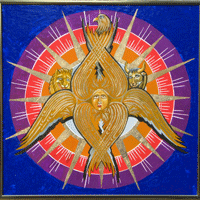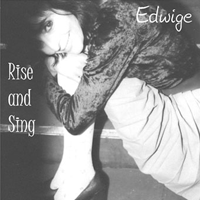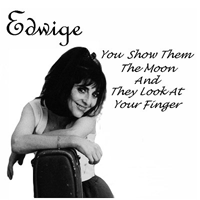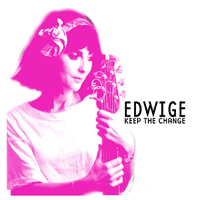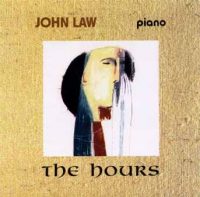Today the Collection begin a two-month American tour. Veering mostly around the South, the Midwest, the West Coast and the Pacific North-Western states, it takes in (bar a mid-tour rendezvous with the Viper Room in Los Angeles) the kind of intimate, audience-engaging venues I’d love to discover on an American road trip of my own – assorted music bars, small theatres, coffee shops. This is in keeping with the band’s stated ethos – based in Greensboro, North Carolina, the Collection describe themselves less as a band and more of “a community of artists, nurses, farmers, students, and everyone in between doing life together.” According to bandleader David Wimbish, “we don’t want fans, we want family. It’s incredible to us that people would even listen to our music, and it’s so much more important for us to connect with those people than to figure out how to get fans.”
The second Collection album, ‘Ars Moriendi’, was released last summer but only crossed my ears recently via a brief and now-expired Noisetrade offer (you can still go there and pick up a free sampler if you want to). I love discovering inspiring records by accident, and ‘Ars Moriendi’ is one of the more emotionally commanding works I’ve heard for a good while. Swelling up from a core of seven people to as many as twenty-five on record, the Collection dip into rock, folk, gospel, barndance, bluegrass, soul and mariachi. Adding banjo, brass, strings, reeds, autoharps, and didgeridoos to the usual pianos, guitar and drums results in a heady grand-medicine-show of a sound.
This in itself isn’t new. There are plenty of expansive Americana folk-rock ensembles peppered with diverse instrumentation; and (either by coincidence, intent or just common feeling) the Collection echo strains of music which we’ve already heard via The Polyphonic Spree, Arcade Fire, Sufjan Stevens and Guillemots; not to mention The Band and Mercury Rev, or the reedy, distracted, keening tones David shares with Damien Rice. What gives them the Collection their particular edge is the driving verve and commitment with which they play. Despite their hollering utopian tendencies of their singalongs they’re unconcerned with party robes or cute, culty psychedelic trappings. Instead, their music is imbued with communitarian impulses and a fumbling, ever-hopeful sense of personal connections.
Integral to this is the band’s Christianity. Almost every one of David Wimbish’s songs is studded and seeded with Biblical allusions and resonances, yet he’s never rendered complacent and conformist by his faith. Rather, he’s caught up in it – a tender-hearted radical questioning and examining his beliefs, challenging his own conscience and the orthodoxy, compelled to decry the church’s seams of bigotry and exceptionalism whenever he stumbles over them. At the same time, David is clearly fascinated by the church’s central mystery of life renewed, setting it (with some pain and trepidation) against the deaths of friends and family that cut grief-lines into his songs and filter both darkness and weight into the Collection’s music. Like me, you don’t have to actually be a believer to be moved by David’s explorations and exhortations as he travels from exuberance to despair, from buoyant encouragement to audible tear-swallowing. After all, the best Christian music is always a little wracked and cracked: something in which their faith reveals people to themselves, and perhaps a little more of their humanity to others.
On this tour, the Collection will be accompanied by two of their Greensboro compatriots – husband-and-wife duo Daniel and Lauren Goans, a.k.a. Lowland Hum. Fond of the intimacy of house concerts, they ought to make a good foil and complement to the Collection’s inclusive spirit. Hopefully Daniel and Lauren will get the chance to carry out their usual immersive, synaesthesic gig experience – staging and dressing the playing environment with props and essential oil burners, passing out hand-bound lyric books to their audience, and generally eliding the boundaries between the many ways a person can experience a concert.
Even if not, there’s still the music from their eponymous debut album (released in April this year) to consider. ‘Lowland Hum’ is an enthrallingly American art-pop record in which country-duo harmonies and Atlantic folk guitar intertwines with multi-instrumental Portishead/Mandalay trip hop, and in which songs flick unsettlingly between sports arena scale and backyard porch intimacy in the space of a breath. Lyrical preoccupations (fragmented but lucid) span ageing, the shifting internal perspective of growing and growth, or suburban disassociations; or cover the life of Toulouse-Lautrec in ten short scattered lines.
Sharing voices, instrumentation and production between them, Lauren and Dan sometimes seem to phase in and out of each other (as on Rolling And Rolling, a touching first-person meditation on a boy’s budding adolescence on which both singers take turns to voice his slipping thoughts). Similarly, they move through genres like purposeful ghosts. A song like Jack Of Hearts (a study of the dangers of power and charisma) can begin as a country cautionary, fray into psychedelic folk, clatters its sticks into complications and end up as a layered ambient march.
On a couple of dates the Collection and Lowland Hum will be joined by other performers. In Birmingham, Alabama, they’ll be playing with folk-rock trio War Jacket (who describe themselves as both warm and haunted, like their hometown); in San Francisco by Gothic-tinged chamber-pop crooner (and Stephen Merritt collaborator) Jon DeRosa; and in Greely, Colorado by both the Denver art-and-music collective Giants & Pilgrims and the outlaw-country cowpunker Matt Davis.
Full tour dates below:
- Ashland Coffee and Tea, 100 North Railroad Avenue, Ashland, Virginia, USA, Thursday 20th August 2015
- Twisted Branch Tea Bazaar, 414 E Main St, Charlottesville, Virginia, USA, Friday 21st August 2015
- Hanesbrands Theater @ Milton Rhodes Centre for the Arts, 251 Spruce Street North, Winston-Salem, North Carolina, USA, Saturday 22nd August 2015
- Local 506, 506 West Franklin St, Chapel Hill, North Carolina, USA, Sunday 23rd August 2015
- The Pour House, 1977 Maybank Highway, Charleston, South Carolina, USA, Monday 24th August 2015
- The Camp House, 832 Georgia Avenue, Chattanooga, Tennessee, USA, Wednesday 26th August 2015
- Eddie’s Attic, 515 North McDonough Street, Decatur, Georgia, USA, Thursday 27th August 2015
- The Nick, 2514 10th Avenue South, Birmingham, Alabama, USA,
Friday 28th August 2015 (supported by War Jacket) - The Beatnik, 615 Toulouse Street, New Orleans, Louisiana, USA, Saturday 29th August 2015
- Common Grounds, 1123 South 8th Street, Waco, Texas, USA, Sunday 30th August 2015
- (House Show), 407 Mignon Lane, Houston, Texas, USA, Monday 31st August 2015 (ticketed – apply via link)
- Mohawk, 912 Red River Street, Austin, Texas, USA, Wednesday 2nd September 2015
- The Viper Room, 8852 West Sunset Boulevard, West Hollywood, Los Angeles, California, USA, Sunday 6th September 2015
- Hotel Utah, 500 4th Street, San Francisco, California, USA, Wednesday 9th September 2015 (supported by Jon DeRosa)
- Fremont Abbey, 4272 Fremont Avenue North, Seattle, Washington, USA, Friday 11th September 2015
- Kelly’s Olympian, 426 SW Washington Street, Portland, Oregon, USA, Sunday 13th September 2015
- Old Nick’s Pub , 211 Washington Street, Eugene, Oregon, USA, Tuesday 15th September 2015
- Reef, 105 South 6th Street, Boise, Idaho, USA, Thursday 17th September 2015
- The Dawg Pound, 3550 South State Street, Salt Lake City, Utah, USA, Saturday 19th September 2015
- Moxi Theatre, 802 9th Street, Greeley, Colorado, USA, Monday 21st September 2015 (supported by Giants & Pilgrims, Matt Davis)
- Downtown Artery, 252 Linden Street, Fort Collins, Colorado, USA, Tuesday 22nd September 2015
- Hi-Dive, 7 South Broadway, Denver, Colorado, USA, Wednesday 23rd September 2015
- The Tank Room, 1813 Grand Boulevard, Kansas City, Missouri, USA, Thursday 24th September 2015
Woven in and out of this tour, Lowland Hum will be playing some separate headlining dates of their own (shared, on one North Carolinan occasion, by church-and-country songwriter Josiah Early).
- Horizon Records, 2-A West Stone Avenue, Greenville, South Carolina, USA, Tuesday 25th August 2015
- Westmont College, 955 La Paz Road, Santa Barbara, California, Saturday 5th September 2015
- Old Orchard Church, 640 Amelia Avenue, Webster Groves, St Louis, Missouri, USA, Saturday 26th September 2015
- The Grey Eagle, 185 Clingman Avenue, Asheville, North Carolina, USA, Sunday 25th October 2015 (supported by Josiah Early)






